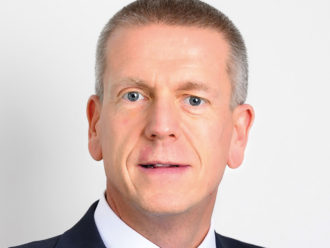by Kerstin Bendix
portfolio institutional speaks to Allianz Investment Management CIO Nikhil Srinivasan. A year after Allianz signed the UN Principles for Responsible Investment, we ask him what has changed.

Sceptics have criticised ESG proponents in the past over having to make a choice between achieving sustainability or performance. Can they be combined?
We believe that incorporating ESG criteria in our investment value chain will lead to sustained investment performance.
How difficult was it to convince your investment manager and others internally?
Sustained investment performance, reduced fat-tail risk, safeguarding our reputation and fulfilling our responsibility towards our insurance customers are sound business reasons that are shared by our investment managers. Pimco and the AllianzGI subsidiaries RCM, AllianzGI Korea and AllianzGI Investments Europe signed UNPRI as well and established different approaches for sustainable and responsible investment for their third-party asset management.
How do you implement ESG globally? Are there guidelines which are implemented separately in each country? As a first step we have set up an ESG Advisory Board to bundle the experience from senior management members of different Allianz Group functions like investment management, asset management, risk management, communication and Allianz- 4Good, our internal corporate responsibility function. The ESG Advisory Board is supported by a project team on group level and ESG experts in all our five local investment management locations around the world.
The ESG Advisory Board meets on a quarterly basis and gives recommendations to the Allianz Group Finance Committee, where decisions on ESG topics are taken. This governance structure gives us the opportunity to benefit from a broad regional and functional range of experiences and secures, that decisions on ESG topics are taken on Allianz SE board level.
Our ESG directive to asset managers will set out expectations and guidance about incorporating material ESG factors into the investment decision-making and portfolio construction processes. The asset managers decide how these ESG factors are taken into account. Our Exclusion Guideline is implemented on a global basis and covers all our proprietary assets. Our asset managers are required to abstain from any investment activity with entities listed on our exclusion list.
What are your first measures?
As a first ESG measure we ensure that our proprietary assets, shares and bonds, are not invested in companies involved in controversial weapons – cluster munitions, antipersonnel mines, biological and chemical weapons. By the end of 2011 we sold any existing investments falling under our exclusion policy and implemented proper systems to monitor compliance with these rules. As a next step we will have a comprehensive training by an external adviser to create awareness and a better understanding for sustainability and ESG in general. Our ESG Advisory Board members as well as our local ESG experts will participate in that training.
After that training we will start to roll out our ESG directive to asset managers asking them to systematically integrate ESG factors into investment decisions (through ESG research, corporate and country analysis, asset allocation, etc.) and we will in parallel further elaborate and define our global ESG strategy.
Do you conduct your own research for ESG topics or do you use external research?
We engaged an external adviser for identification and assessment of companies involved in controversial weapons business. The expertise embedded in our asset management entities with dedicated research, portfolio management and shareholder engagement capabilities in ESG/SRI has been a strong support in the process. Their experience and track record was instrumental in asking the right questions and finding an appropriate strategic and operational set up.
What approaches do you use to implement ESG and the UNPRI principles?
The exclusion guideline on controversial weapons was our first approach. It is based on international conventions. We also exclude government bonds, direct investments in government-owned businesses or other securities directly or indirectly issued by governments deemed to be controversial by the Allianz Group Finance Committee and our ESG Advisory Board. We have not made decisions regarding other ESG topics and approaches, yet.
Which kind of government bonds and direct investments in government-owned businesses are deemed to be controversial by the Allianz Group Finance Committee and ESG Advisory Board?
We are especially cautious investing in areas of political conflict. We have an exclusion list for our asset managers, which is not public as we do not comment on single investments or non-investments.
- 1
- 2
- »




Comments